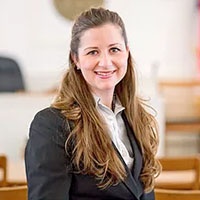Como Estate Planning Lawyer, North Carolina
Includes: Gift Taxation
Not enough matches for Como Estate Planning lawyer.
Below are all Como Estate lawyers.
Assata Kimbrough Buffaloe
Criminal, Divorce & Family Law, Wills & Probate, Criminal
Status: In Good Standing Licensed: 29 Years
William H. High
Education, Traffic, Estate Planning, DUI-DWI
Status: In Good Standing Licensed: 34 Years
Horace Mitchell Baker
Wills, Estate Planning, Workers' Compensation, Personal Injury
Status: In Good Standing Licensed: 48 Years
Horace Mitchell Baker
Wills, Estate Planning, Workers' Compensation, Personal Injury
Status: In Good Standing Licensed: 48 Years
Horace Mitchell Baker
Wills, Estate Planning, Workers' Compensation, Personal Injury
Status: In Good Standing Licensed: 125 Years
David Oettinger
Income Tax, Corporate Tax, Tax, Gift Taxation
Status: In Good Standing Licensed: 47 Years
George Paul Duffy
Juvenile Law, Real Estate, Litigation, Estate Planning
Status: Inactive Licensed: 50 Years
Joseph Garriss Mckellar
International Tax, Estate Planning, Family Law, Accident & Injury
Status: In Good Standing Licensed: 18 Years
Benjamin Denton Carter
International Tax, Estate Planning, Family Law, Business & Trade
Status: In Good Standing Licensed: 10 Years


